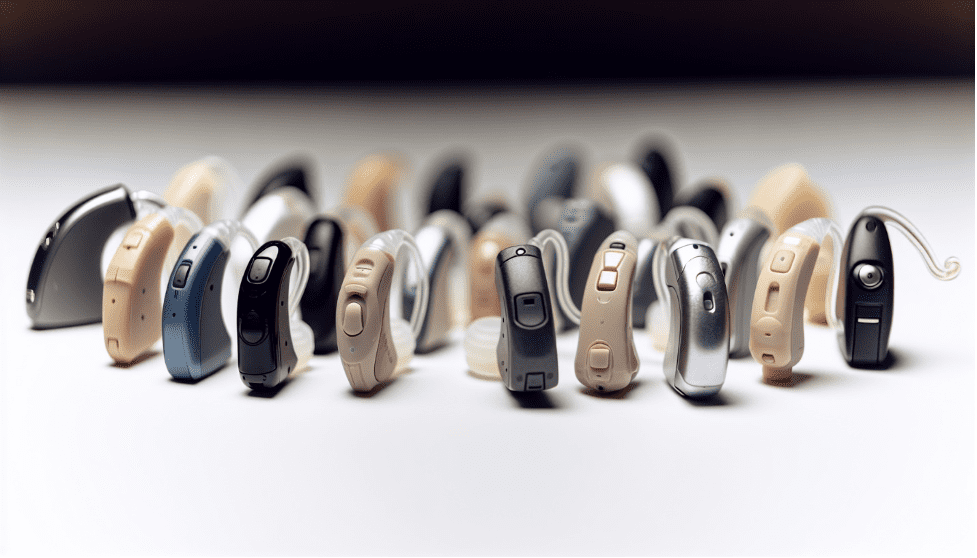Does Medicare Cover Hearing Aids?
Navigating the world of Medicare and hearing aids might be challenging. If you’re wondering if Medicare covers hearing aids, sadly, Original Medicare does not. However, some Medicare Advantage plans may include hearing aid benefits.
This article will explain the ins and outs of Medicare coverage for hearing aids and the opportunities you may have to reduce your hearing aid expenses.
Key Takeaways
- Original Medicare will likely not cover hearing aids or fitting exams, though medically necessary hearing tests prescribed by a physician may be covered under Part B up to 80% after the deductible.
- Some Medicare Advantage (Part C) plans may offer coverage for hearing aids and exams, with varying degrees of coverage, provider types, and potential restrictions on the frequency of aid replacement.
- Medicaid may also cover hearing aids depending on the state and individual’s age, with children under 21, who will likely have coverage for hearing health services, while Medigap plans may not cover hearing aids.
Compare Plans in One Step!
Enter Zip Code
Original Medicare and Hearing Aid Coverage
Primarily designed for older adults and individuals with specific disabilities, Medicare is a federal health insurance program. This program is split into two parts: Original Medicare includes Part A (hospital insurance) and Part B (medical insurance). Unfortunately, Original Medicare may not cover hearing aids.
Under Original Medicare, there may not be any coverage for hearing aids or exams for fitting them. This will likely mean that individuals may be responsible for the full cost of their hearing aids. However, Medicare Part B could provide coverage for medically necessary hearing tests if they have been prescribed by a physician, covering at least 80% of the test cost after the deductible is met.

Original Medicare might not cover hearing aids due to the Medicare Act, passed in 1965 and there was minimal recognition of the importance of treating hearing loss. At that time, hearing aids were considered affordable and not routinely needed in the federal health insurance program.
Medicare Advantage and Potential Hearing Aid Benefits
Despite the lack of hearing aid coverage in Original Medicare, certain Medicare Advantage plans, or Part C may offer some coverage. Certain Medicare Advantage insurance plans may offer coverage for hearing exams and hearing aids.
Additionally, these plans may also encompass supplementary benefits that might not be included in Original Medicare.
The types of hearing aid coverage that could be offered by Medicare Advantage plans may vary greatly. They may provide discounts, funded benefits, or limited coverage for specific procedures. Some plans may also impose restrictions on the frequency of obtaining hearing aids, potentially limiting enrollees to one set per year or one pair every two years, which could affect hearing aid costs.
Comparing Medicare Advantage Plans
Comparing Medicare Advantage plans will likely be a key step. The range of plans could include:
- HMO (Health Maintenance Organization)
- PPO (Preferred Provider Organization)
- MSA (Medicare Savings Account)
- PFFS (Private Fee-for-Service)
Some of these plans may cover hearing exams and other hearing-related services provided by another health care provider.
The scope of coverage and the potential aspects of cost-sharing could diverge significantly across plans, including those designed for individuals with moderate hearing loss.
Medicare Supplement (Medigap) and Hearing Aids
Medicare Supplement, also known as Medigap, could be another Medicare aspect to contemplate. These are supplementary insurance plans acquired from private insurers, and have been designed to cover certain out-of-pocket costs for services that might be included in Original Medicare. Some of these Medigap plans, like Original Medicare, may also not cover hearing aids.
Medicaid and Hearing Aid Coverage
Despite Medicare’s limited hearing aid coverage, Medicaid could offer an alternative solution. The coverage of hearing aids through Medicaid, however, will likely be contingent on the state of residence and the individual’s age.
Depending on where they live, adults may have access to coverage for hearing aids and other hearing health services. Availability of coverage may vary by location. To determine eligibility for hearing aid coverage through Medicaid or to initiate the application process, individuals can call one of our licensed agents at 1-833-641-4938 (TTY 711), Mon-Fri 8 am-9 pm EST.
Medicaid may also provide hearing health services such as assessments, evaluations, and access to hearing aids and accessories for individuals under 21 with hearing impairments. These services will likely be designed to support their hearing needs.
However, it’s important to note that in certain states, the coverage might not include hearing aid batteries.
Veterans Affairs and Possible Hearing Aid Benefits
Veterans may have an additional option for hearing aid benefits to explore. The U.S. Department of Veterans Affairs (VA) might offer a range of hearing aids to qualified veterans, potentially including free hearing aids for individuals with service-connected hearing loss.

Veterans may apply for these benefits by contacting one of our licensed agents at 1-833-641-4938 (TTY 711), Mon-Fri 8 am-9 pm EST. The VA could potentially offer a range of hearing aids which may include options from manufacturers such as Oticon.
Applying for Medicare Plans with Hearing Aid Coverage
For those who may be considering a Medicare Advantage plan with potential hearing aid benefits, the first step is to enroll in Parts A and B. Once enrolled, you can initiate the application for Medicare coverage by calling 1-833-641-4938 (TTY 711), Mon-Fri 8 am-9 pm EST.
To compare various Medicare coverage options, which might include plans that could offer benefits for hearing aids, you could use the Medicare Plan Finder. This online tool can help you find the best plan that meets your needs.
Beyond these online resources, our insurance agents can be instrumental in the Medicare Advantage plan enrollment process. They can assist in:
- discussing available options
- evaluating coverage
- providing updates on Medicare
- helping individuals save time and resources.
Alternative Options for Paying for Hearing Aids
Insurance coverage could potentially help alleviate the financial burden, but it’s not the main way to manage the potential cost of hearing aids.

One alternative may be the HSA/FSA pre-tax income to cover hearing aid expenses. This could be done by either purchasing the devices out of pocket and then seeking reimbursement from the HSA/FSA account after submitting a claim and receipt, or by using a debit card provided by some accounts for direct payment of hearing aid expenses using the pre-tax funds.
Another alternative could be considering wholesale retailers for fitting hearing aids. Thanks to their advantage of buying power, they might offer hearing aids at reduced prices compared to audiology offices.
Lastly, unbundling audiology services could also lead to a notable reduction in the total expenses associated with hearing aids. This will likely refer to the practice of exclusively paying for the hearing aid device, which may exclude any supplementary charges for services like fittings, follow-up adjustments, and routine check-ups.
Importance of Addressing Hearing Loss
Addressing hearing loss is of utmost importance. It will likely be paramount for overall health and well-being, thus it could be essential to seek assistance from hearing healthcare professionals.

Neglecting to address hearing loss may be connected to health risks including:
- Difficulties with walking
- Falls
- Dementia
- Depression
- Anxiety
- Social isolation
- Diminished quality of life
- Impaired memory
- Heightened risk to personal safety
Additionally, untreated hearing loss may also lead to:
- Faster brain atrophy
- Increased chances of social isolation
- Depression
- Suicidal thoughts
- Negative impact on personal and professional life
It will likely be crucial to prioritize early diagnosis and treatment to address these mental health implications.
Summary
Looking at the complex landscape of Medicare and hearing aid coverage, it’s clear that navigating this path will likely require careful research and consideration. While Original Medicare may not cover hearing aids, there could be other options available through Medicare Advantage plans, Medicaid, and the VA for veterans.
Understanding the importance of addressing hearing loss may be essential. By staying informed, you may ensure that you’re making the best decisions for your hearing health.
Frequently Asked Questions
→ Are hearing aids covered by Medicare?
No, Medicare may not cover the cost of hearing aids. However, Medicare may cover the cost of diagnostic hearing tests and certain related services such as fitting and adjustment of hearing aids.
→ Do AARP members get discounts on hearing aids?
Yes, AARP members could potentially save up to 20% on hearing aids and 15% on accessories, along with possibly receiving a no-cost hearing test and personalized support through a large nationwide network of hearing providers. The potential offer may be available through UnitedHealthcare Hearing SolutionsTM.
→ Does Medicare Advantage (Part C) provide coverage for hearing aids?
Yes, some Medicare Advantage plans may provide coverage for hearing exams and hearing aids. Check your plan for specific details.
→ Is hearing aid coverage available through Medicaid?
Medicaid’s coverage for hearing aids may vary based on your state of residence and age. It’s not a universal benefit.
→ What hearing aid benefits may be offered to veterans by the VA?
Veterans may be eligible for free hearing aids through the U.S. Department of Veterans Affairs if they have service-connected hearing loss.

ZRN Health & Financial Services, LLC, a Texas limited liability company




